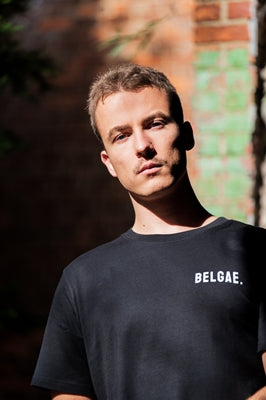Principle #1 of Taoism: the Tao (道, the Way)
In the mystical world of Taoism, there is a fundamental principle: the Tao (道, the way). A complex concept deeply rooted in the spiritual history of China.
This first principle is not simply a doctrine or a philosophy. Rather, it is a current of universal energy that guides everything that exists towards its natural fulfillment.
Understanding the Tao is essential to fully embracing the teachings of Taoism.
Contents : 1. Simple definition of the Tao 2. Etymology of “Tao” (Chinese) 3. What does the Tao represent in Taoism?

Simple definition of the Tao
The Tao, a key concept in Taoism, an ancient Chinese philosophy and religion, is considered the guide or fundamental law that governs the universe and its various expressions. Translating “Tao” precisely into French is complicated because it contains multiple deep interpretations.
Taoist thought states that everything in the universe is connected by a constant current of energies called Qi (or Chi). The Tao symbolizes this primary power which gives life to all things and promotes their harmonious cohabitation.
In order to better understand this central concept in Taoism, we must understand its complex meaning: it is the natural way of things, the ultimate principle governing all universal manifestations.
In addition, the Tao also embodies this omnipresent vital energy commonly referred to as Qi or Chi. This incessant force ensures the connection between each element of the universe for a serene and balanced existence.
Etymology of “Tao” (Chinese)
The origin of the term "Tao" is found in ancient Chinese language, specifically the character 道, also pronounced "Dao". This complex symbol fuses two components: a foot advancing on a narrow path and the image of a human face adorned with hair. These two elements combined evoke the idea of an individual pursuing his path towards personal fulfillment.
In historical documents like the Dao De Jing, attributed to the philosopher Lao Tzu, we discover phrases such as “Here is how-the-TAO follows”. This highlights this idea of personal progression based on the universal laws of the Tao.
The central notion is that of a person following their own path towards personal development. This quest is not solitary but guided by the universal principles that the Tao represents. A profound concept to explore to understand our place in this vast and complex universe.

What does the Tao represent in Taoism?
In the world of Taoism, the Tao symbolizes a unique cosmic reality and a way to synchronize with it. Its complete understanding escapes words, because it transcends habitual notions and duality.
The Tao is frequently seen as the architect and quintessence of all that exists. It embodies the balance of opposing forces: yin (feminine, passive) and yang (masculine, active). Followers of Taoism aspire to integrate into this harmony by cultivating their internal vital energy in order to reach a state of union with the Tao.
The total incomprehensibility of the Tao in words only reinforces its mystery. Its elusive nature invites us to go beyond traditional concepts to achieve true intuitive understanding.
By valuing the symbiosis between yin and yang, Taoists constantly seek this dynamic balance in their daily lives. It is by constantly nourishing their inner strength that they hope to merge with this indescribable entity that is the Tao.
How to cultivate the Tao?
The alignment of the inner being with the principles of the Tao is at the heart of Taoist practices. This alignment allows you to achieve a fulfilling and enriching life. There are several methods for cultivating the Tao.
Meditation offers an effective way to quiet the mind. It also develops a deep awareness of the present moment, which helps promote a state of tranquility.
Internal alchemy is another technique used in Taoist practice. Specific physical exercises, breathing techniques and visualizations are used to strengthen Qi (vital energy). These methods also help promote its harmonious circulation throughout the body.
Respect for nature also plays an essential role in this ancient philosophy. Followers highly value their connection with the natural environment by observing its seasonal cycles and adopting a sustainable lifestyle that preserves our planet.
Finally, living according to Taoist teachings involves integrating certain key principles such as acting spontaneously without excessive resistance to external events or even embracing simplicity, humility and detachment.

The effects of the Tao in application in our life
Exploring the Tao can trigger beneficial and meaningful transformations in everyday life. Here is a selection of frequently observed impacts:
Personal balance: By following Taoist precepts, one learns to detach oneself from negative thoughts and not to cling too much to results, thus promoting mental and emotional balance.
Reinforced vitality: Thanks to Taoist techniques that boost Qi, we observe an increase in physical energy and a notable improvement in general health.
Intuitive discernment: Immersion in the natural flow of the Tao facilitates the sharpening of intuition to make judicious and appropriate decisions in each context.
Relational fluidity: With a total embrace of spontaneity while unconditionally accepting others, it becomes easier to establish authentic relationships based on reciprocal compassion.
A parallel with concepts from other philosophies?
The Tao, a central concept in Chinese Taoism, shares certain similarities with other philosophical and spiritual traditions.
Dharma in Hindu and Buddhist doctrines is comparable to the Tao. For followers of these Indian beliefs, the Dharma represents the universal moral law that regulates the universe - an idea similar to that of the Tao as a cosmic order.
In Buddhism, we also find a pronounced respect for Nature considered as a guide towards spiritual awakening - a notion that is also valued in Taoism.
The Greek Stoics introduced the “Logos”, a universal principle structuring everything that exists. Despite differences in formulation, this conception is significantly closer to that of the Tao.
However, it must be emphasized that despite these analogies each tradition has its own specific nuances and interpretations.




